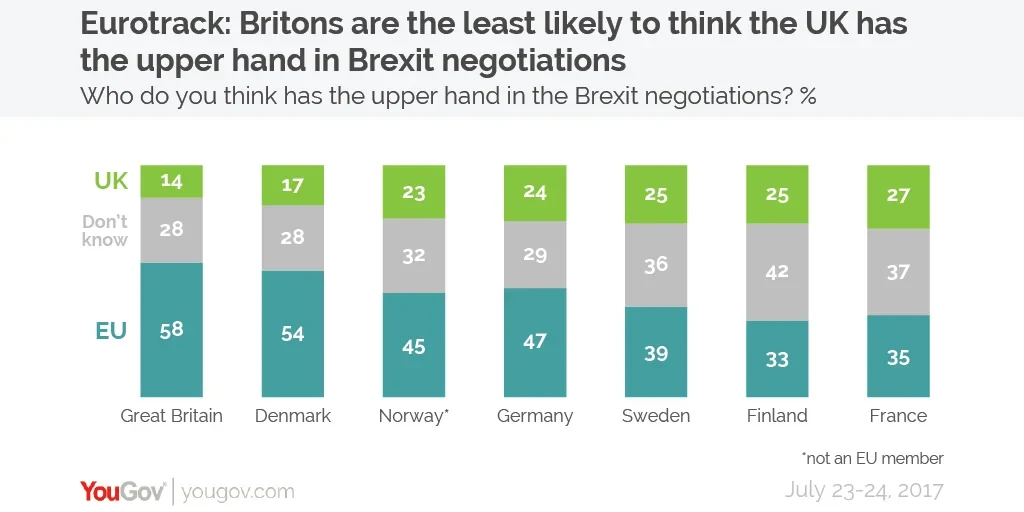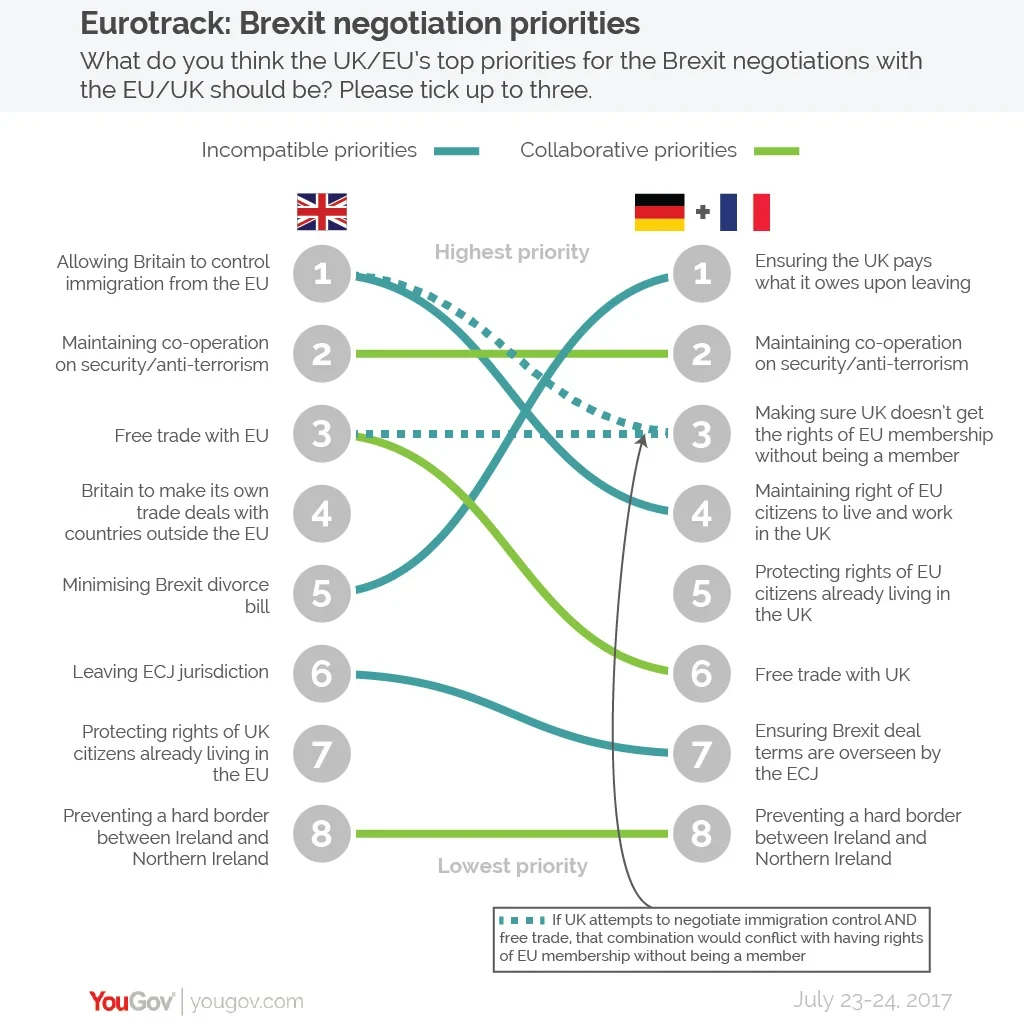New YouGov Eurotrack survey highlights the conflicting Brexit priorities of the public in Britain and Europe
New data from YouGov’s regular Eurotrack survey highlights how people in Britain and key EU nations have conflicting priorities for the Brexit negotiations.
Asked to choose up to three priorities for Brexit from a list of eight, Britons' number one priority is “allowing Britain to control immigration from the EU” (41%). In second place is ensuring continued co-operation with the EU on counter-terrorism (38%), while in joint third are two trade concerns: ensuring tariff-free trade with the EU and allowing Britain to make its own trade deals with countries outside the EU (both 36%).
By contrast, the number one concern of the public in both France and Germany is ensuring that the UK pays what it owes upon leaving the EU (at 40% and 45% respectively). Counter-terrorism is the second most-pressing priority for both (39% in France, 41% in Germany), while ensuring that the UK does not get the rights of EU membership without being a member came third (on 39% and 37% respectively.)
While counter-terrorism is among the main priorities both in Britain and the other European Union states where research was conducted, both sides are directly at odds when it comes to the other chief focuses of the negotiations. The EU nations' strong desire to prevent the UK from having EU rights without being a member directly counteracts the Britons' desire for free trade and immigration controls.
Preventing a hard border between Northern Ireland and the Republic of Ireland is at the bottom of Britons’ priority list (on 11%) and either bottom or second from bottom among the EU nations surveyed (between 4%-12%).
Britons are most likely to think the EU has the upper hand in negotiations
The research also shows that Brits have a more negative view of their side’s Brexit negotiating position than their mainland counterparts. While the public in every nation surveyed are more likely to believe that the EU has the upper hand over the UK in negotiations, approaching six in ten (58%) Britons believe this is the case. By contrast, this figure stands at 35% of French people and 47% of Germans.

Photo: Getty












